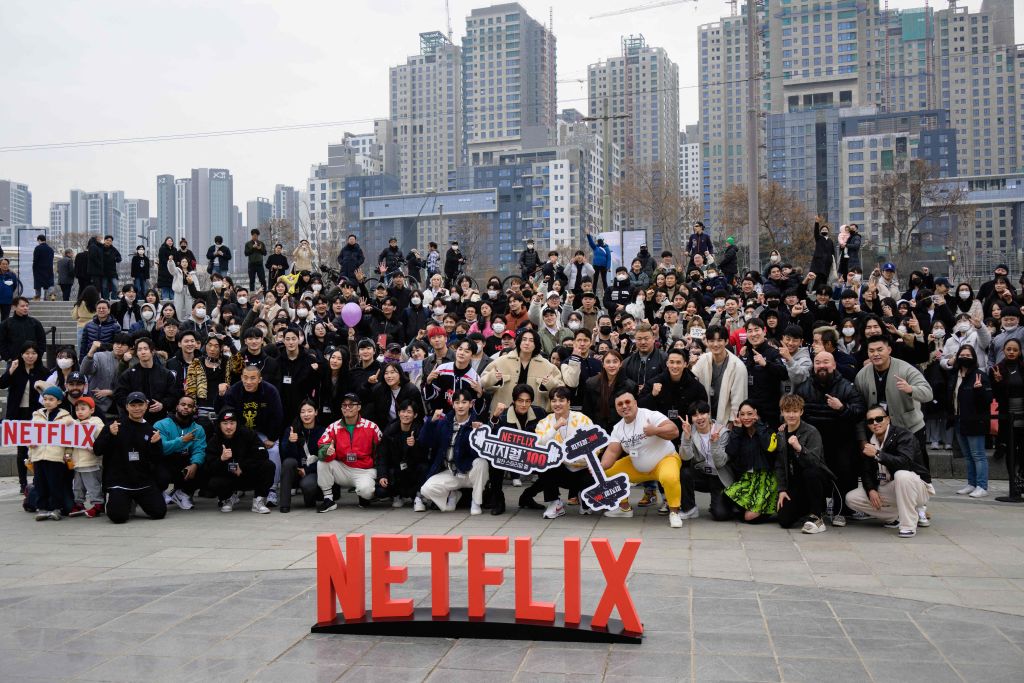
Netflix Inc. promised to back and cultivate the Korean showrunners and studios behind viral shows like Squid Game, outlining how it plans to spend some of the $2.5 billion it’s earmarked for K-drama.
Co-Chief Executive Officer Ted Sarandos said Thursday his company will bankroll training programs for the next generation of auteurs and entertainers, both in front of and behind the camera. Netflix will work with local organizations to identify and groom young talent, he added.
Those initiatives underscore how Korean programs like The Glory have in past years emerged as a surprise catalyst for Netflix, which needs hot original content to differentiate it from rivals such as Walt Disney Co. and Apple Inc. About three-fifths of Netflix’s users have watched a Korean show, and viewing time for those programs has grown six-fold in just four years, he said. About 90% of the viewers for Korean romance-genre content hail from abroad, Sarandos said.
Read More: 7 Netflix K-Dramas to Look Forward to in the Second Half of 2023
Netflix in April pledged to spend $2.5 billion over the next four years in the country. South Korea has already become one of Netflix’s biggest suppliers of TV shows and films, helping fuel a surge in global subscriptions as more consumers tune in to Korean dramas and reality shows.
But the boom has drawn protests from local content creators who complain they haven’t shared proportionately in that success, and from internet providers who want Netflix to pay for a spike in online streaming activity.
Sarandos is visiting Seoul for three days to discuss its investment plans with Korean production partners and government officials, including Prime Minister Han Duk-soo. The Netflix executive argued that investing broadly in creators and production should generate far bigger ripple effects in the economy than simple profit-sharing.
“I wouldn’t say conflict, I’d say that there’s opportunity as businesses evolve,” Sarandos said, responding to a question about a parallel dispute with Korean telecom network providers. “There’s a clear and direct symbiotic relationship between creative companies like ours and internet industries.”
Netflix’s sales in Korea jumped by 22% to 773.3 billion won ($600 million) in 2022 after the company increased the cost of a monthly subscription, according to Byun Jae-il, a main opposition party lawmaker who’s a member of the Science, Technology, Information, Broadcasting and Communications Committee of the National Assembly.
Although the price hike helped raise sales, the new policy hit the number of subscribers in the country. Paying users slid 30% to 1.17 million in the fourth quarter compared to a year earlier, Byun said.
Netflix is also in a legal fight with SK Broadband over payments for using its network. The internet provider is blaming Netflix for explosive traffic growth and demanding the US company pay for using its network. Netflix is fighting back in court, arguing it has no obligation to pay network usage fees.
—With assistance from Christopher Palmeri and Shinhye Kang.
More Must-Reads from TIME
- Cybersecurity Experts Are Sounding the Alarm on DOGE
- Meet the 2025 Women of the Year
- The Harsh Truth About Disability Inclusion
- Why Do More Young Adults Have Cancer?
- Colman Domingo Leads With Radical Love
- How to Get Better at Doing Things Alone
- Michelle Zauner Stares Down the Darkness
Contact us at letters@time.com